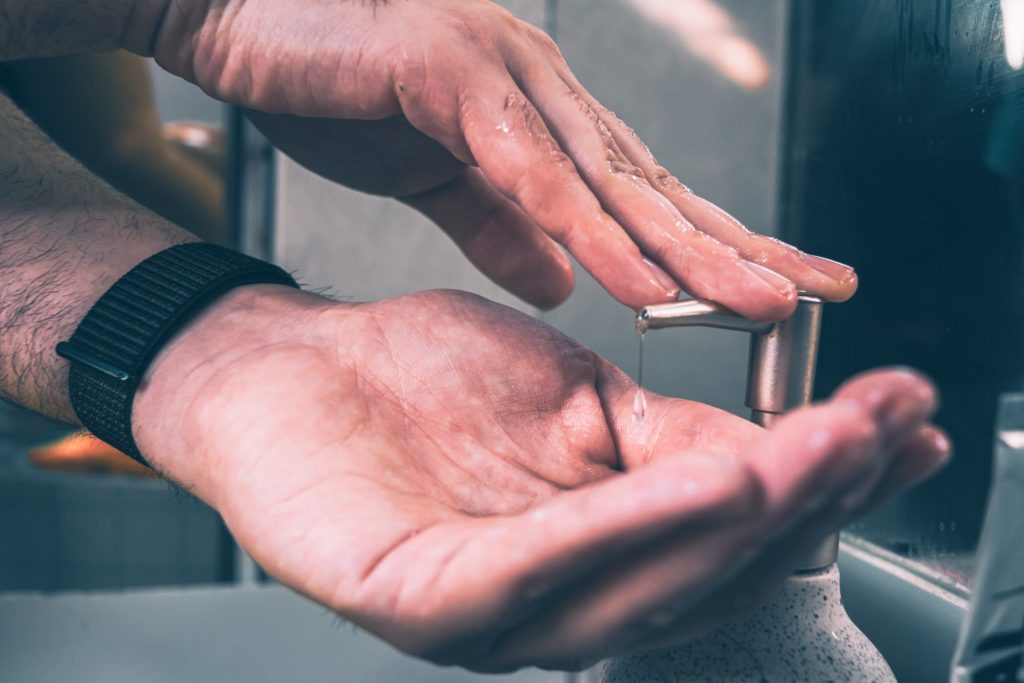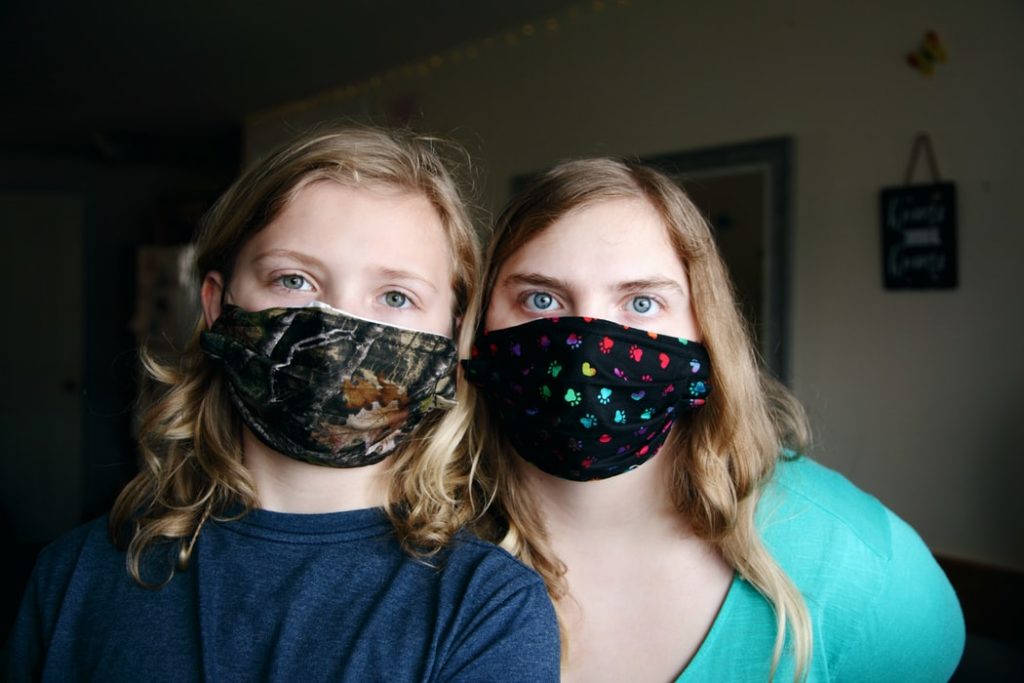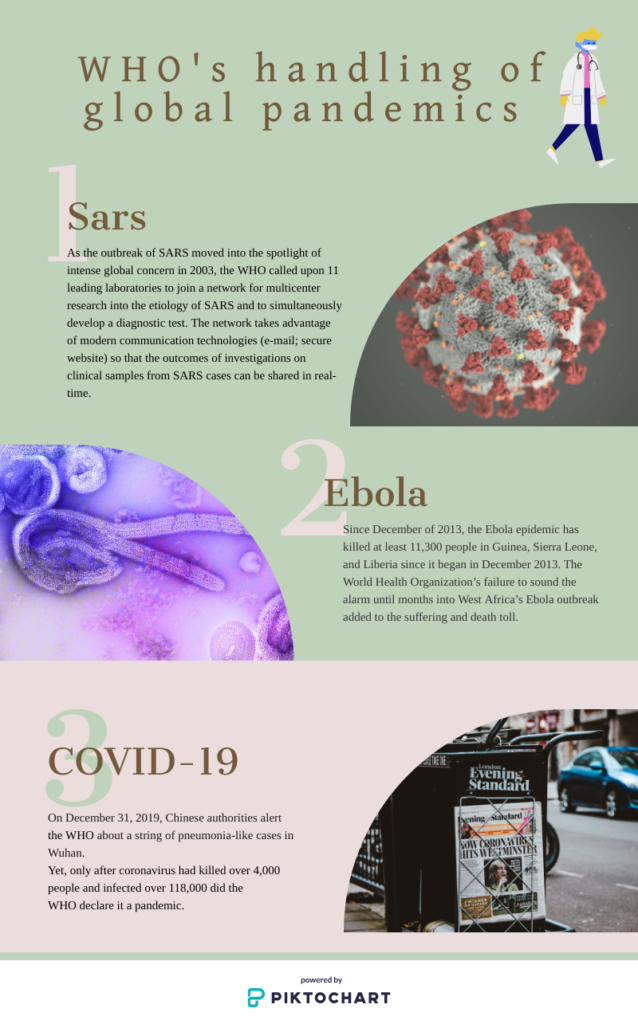Many countries are suffering from high death tolls and COVID-19 cases due to the late response of the WHO. Is there a way to free the organisation of any political influence?

There has never been shortage of surprises when it comes to the President of the United States. But Trump’s announcement on April 14 had everyone’s jaw drop. He addressed in a media briefing that United States would cease funding the World Health Organization (WHO) left people around the world stunned.
“Today I’m instructing my administration to halt funding of the World Health Organization while a review is conducted to assess [its] role in severely mismanaging and covering up the spread of the coronavirus,” Mr. Trump said.
According to the president, the decision was made as a response to the WHO’s slow response in handling the COVID-19 pandemic and the organisation’s “China-centric” attitude.
“The reality is that the WHO failed to adequately obtain, vet and share information in a timely and transparent fashion,” Mr. Trump said during a media.
Soon after Trump’s announcement was made, the Director-General Tedros Adhanom Ghebreyesus responded at a briefing, stating its regrets of the United States’ withdrawal.
He added that “our commitment to public health, science and to serving all the people of the world without fear or favour remains absolute.”
While many suspect Mr. Trump’s true intentions in freezing the funds were to deflect blame on other countries for the administration’s failure to control the spread of the virus, others have had similar critiques of the WHO for its willingness to broadcast misinformation from Beijing.
From the beginning of the pandemic, WHO has had missteps after missteps in handling the COVID-19 situation. From the start, instead of trusting non-official sources in the severity of the situation, the agency stuck with the Chinese government’s statement. And in doing so, ignored warnings from Taiwanese doctors and the Chinese whistle-blower Dr. Li Wenliang who later died of COVID-19.
Even after the virus had spread to numerous countries, the WHO still refuses to hold China accountable. In a report, the general-director of WHO even went as far as to congratulate Beijing’s handling of the situation and its success in halting the spread of the pandemic as well as saving countless lives.
Only after coronavirus had killed over 4,000 people and infected over 118,000 did the agency declare it a pandemic. Still, the organisation refused to point fingers at the alleged perpetrator.
Steve Tsang, director of the China Institute at the SOAS University of London, said to Foreign Policy, “I thought the greatest success of the Chinese party-state was in getting the WHO to focus on the positive sides of China’s responses and ignore the negative sides of the responses.
“With the WHO presenting China’s responses in a positive light, the Chinese government is able to make its propaganda campaign to ignore its earlier mistakes appear credible and to ignore the human, societal, and economic costs of its responses.”
While covering up outbreaks has always been China’s way to manage how the nation is perceived internationally, the WHO’s treatment of China has drastically changed after almost two decades.
“It would have been much better if the Chinese government had been more open in the early stages,” was the response from then director-general Gro Harlem Brundtland of the organisation. Additionally, he criticized China for downplaying and covering up the outbreak.
Then, what exactly changed in the twenty years? The reasons are twofold.
Firstly, Beijing’s contribution to the organisation has increased by 52% in the past six years to around 86 million. At the same time, the country’s voluntary contributions have also grown from $8.7 million to $10.2 million in 2019. While this number seems trivial compared to the contribution made by the U.S. ($893 million), many experts believe that China’s accumulating influence in the UN makes it appear more reliable an ally then other members in the organisation.
Secondly, China has always been in support of Tedros in the WHO’s 2017 Director-General election. It seems that China has bet on the right horse. Soon after Tedros was elected, he announced the agency’s support of the “One China” principle, which recognizes China as having sovereignty over Taiwan, a statement welcomed by the Chinese authorities.
“I think we should make sure we condition our future funding on necessary reforms,” liberal MP and former diplomat Dave Sharma said to Sky News Australia, “we will need to settle on those reforms with a group of other countries, like-minded countries as well, but this is generally how we drive change in the international system… we make our continued contributions, continued support for the international organisations, contingent upon reforms that must be done.”
Yet, with the ongoing pandemic, reform seems a long way away. Fortunately, there is a silver lining.

“The WHO is only as effective as the nations that make up this body, so cutting funds and issuing threats won’t really work in the long term. Someone will have to get their hands dirty and fix the flaws of the system. Could that someone be India?” Palki Sharma, an anchor of the online media WION which provides deep analysis to global issues, said in a video.
From May 22, India will be taking the leadership role of the executive board chairperson. The executive board is a WHO wing that is responsible for implementing policies. The government in India will be the successor of Japan, who, by May 22, will have completed its one-year term.
“This means that Dr. Tedros will have to get the chairperson, India, onboard for all important decisions…[WION] offer five things the Indian government can and must do to fix the broken system of the body… a good place to start is to ask questions,” Palki Sharm added.
To ensure the WHO is working properly, India, as the new executive board chairperson, will need to hold Dr. Tedros accountable by questioning the missteps of the agency. Questions regarding the reason behind the delay in announcing a pandemic only after the virus has spread to more than 85 countries and Dr. Tedros’ relationship with Chinese officials require immediate answers.
The online media also added that members of the WHO need to take responsibility for handling the situation.
“India must also insist on financial independence. How much does money talk in this body?”
The WHO’s budget consists of assessed and voluntary contributions. The media believes the body should disclose private donations that could influence the body’s decisions.
“Which private sources are sending money to the WHO? Are they from China? If yes, how much influence do they reel? The world must know,” Palki Sharm demanded.
Since WHO was founded, it has always required assessed contributions from members and voluntary budgetary contributions to meet the organisation’s mandate. But recently, the organisation seems to become increasingly more dependant on voluntary funds to see to the deficits of its budget. While assessed contributions from countries have only increased by 3% since 2014, voluntary funds have increased by 18%. The increasing dependence on these funds renders the agency susceptible to political influences.
Then, the media urges that the Indian government push for Taiwan’s inclusion in the organisation.
“Taiwan must be allowed to share its expertise on the pandemic for the simple reason that its response has been the best,” said the anchor.
On December 31, 2019, when the situation in Wuhan began to alarm Taiwanese officials, the country warned WHO of the COVID-19’s potential for human-to-human transmission, yet the warning was ignored.
Taiwan’s response to COVID-19 has been swift and decisive from the start. It was vigorous with screening, testing, contact tracing, and enforcing quarantines which allowed the country to contain the virus. Its success should not be ignored and cooperation from all countries is key.
“We hope through the test of this epidemic, the WHO can recognise clearly that epidemics do not have national borders, no one place should be left out because any place that is left out could become a loophole… any place’s strength shouldn’t be neglected so that it can make contributions to the world,” said Taiwan’s health minister Chen Shih-chung at a recent press conference.
“Lastly, [the new chairperson should] conduct an international probe on the outbreak,” Palki Sharm added.

China says it is ready for an international probe with close cooperation with the WHO. Yet, the media questions the integrity of the head of the WHO to stay unbiased when dealing with China. The media urges the new chairperson to investigate thoroughly on the matter and the world must not waste any more time regretting missteps.
“We finally have an opportunity. India must take the lead and WHO member nations must extend their support.”
Founded in 1948, the WHO started with an aim to ensure the health of all people. Yet, the organisation’s recent actions and political influence could suggest that the agency deserves reflection. Only when the organisation has the best interest of the health of everyone at heart can it operate and maintain its initial goal.

